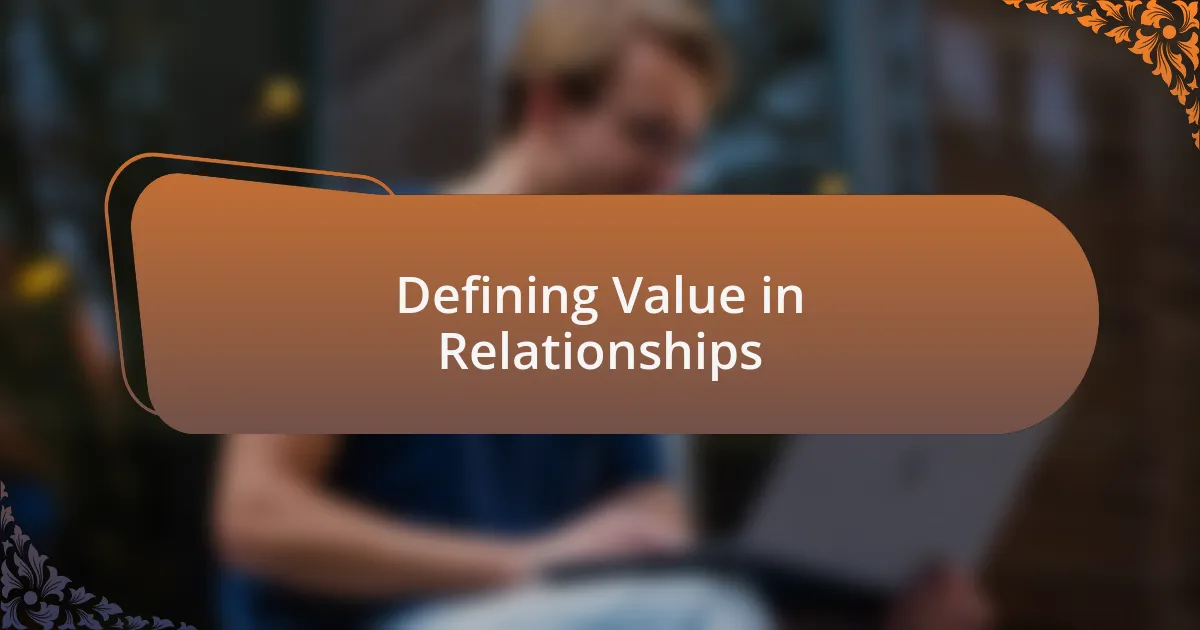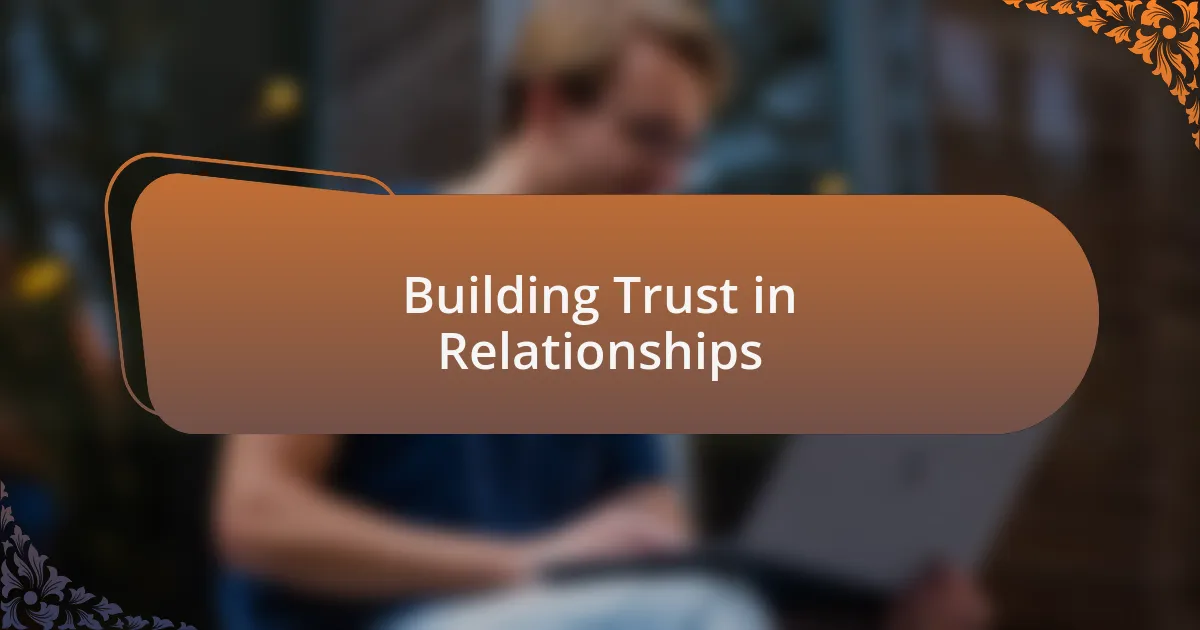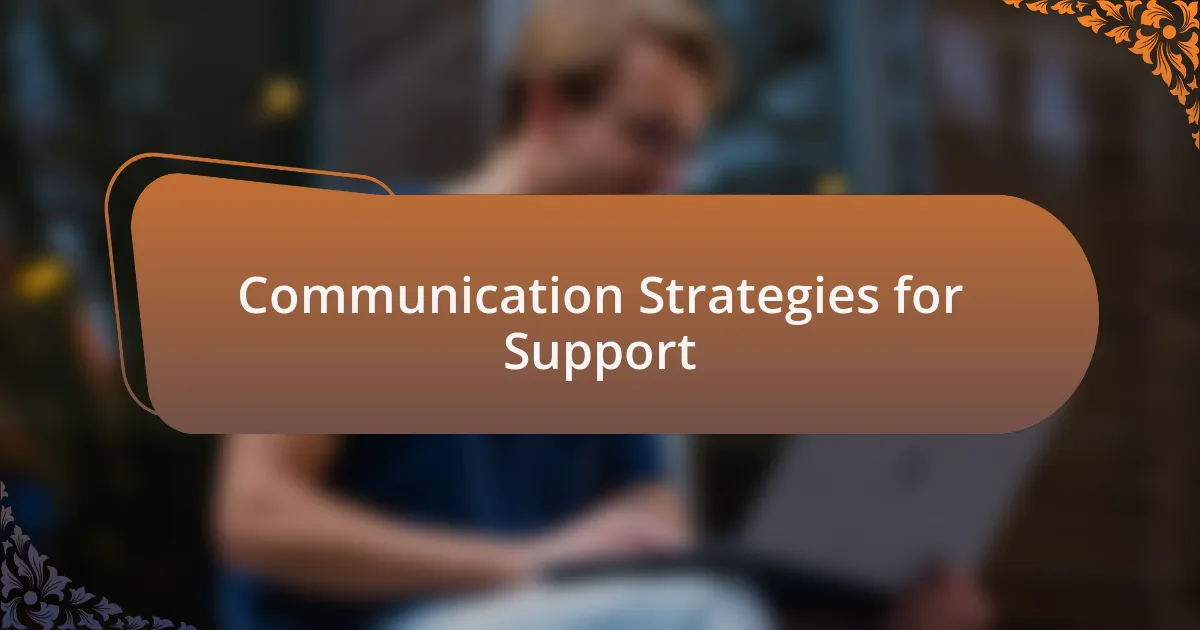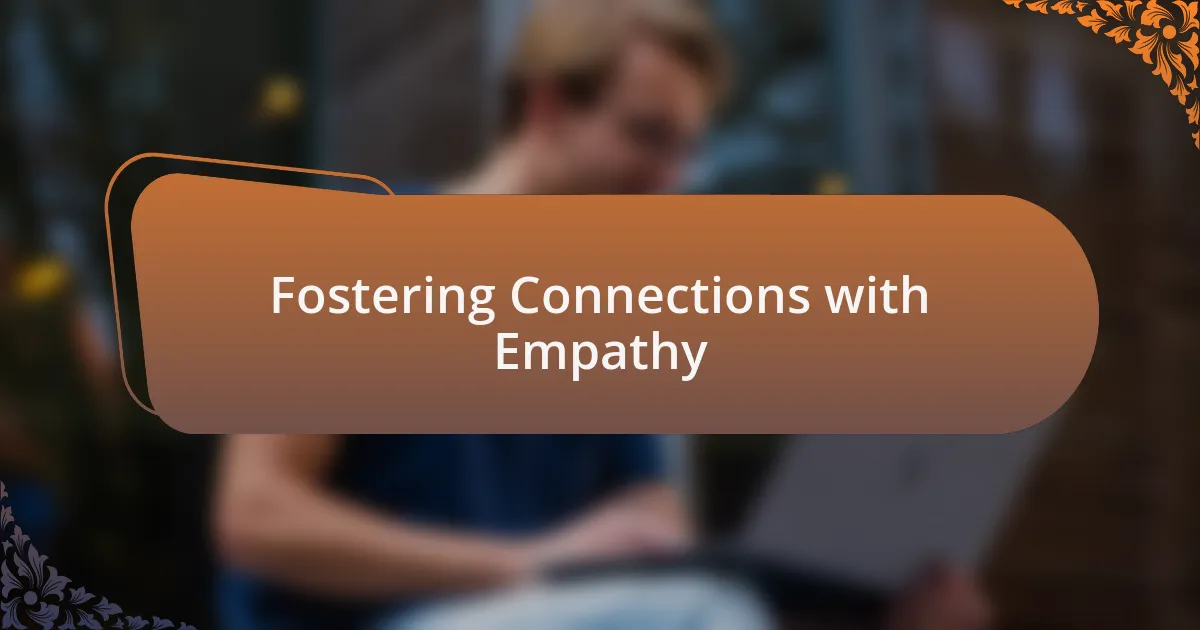Key takeaways:
- Selective mutism is a complex anxiety disorder where affected individuals can speak freely in comfortable settings but struggle in social situations due to overwhelming anxiety.
- Building trust in relationships is essential and involves small, consistent actions that create a sense of reliability and safety for open communication.
- Effective communication strategies, such as using open-ended questions and allowing time for responses, can enhance support for individuals with selective mutism.
- Empathy plays a crucial role in fostering connections, as it encourages individuals to express themselves without feeling rushed or judged.

Understanding Selective Mutism
Selective mutism is a complex anxiety disorder that primarily affects children, where they struggle to speak in specific social situations despite being able to communicate freely in comfortable environments. I remember meeting a young girl who could easily chat about her favorite books at home but clammed up completely in her classroom. Watching her silent struggle opened my eyes to how deeply intertwined anxiety and communication can be.
The silence of selective mutism often speaks volumes about the internal battles faced by those affected. Have you ever felt the weight of expectations in a crowded room, unable to voice your thoughts? I can relate; it’s as if there’s an invisible barrier that prevents words from surfacing, leaving individuals feeling isolated and misunderstood.
Understanding that selective mutism is not a choice but a response to overwhelming anxiety is crucial. Reflecting on a friend’s experience, I learned how she felt trapped by her inability to express herself in social gatherings. It made me realize that empathy and patience are essential when supporting someone with this condition, as their silence is not a reflection of their thoughts but rather a shield against their fears.

Defining Value in Relationships
In relationships, value is often defined by trust, respect, and emotional support. I remember a time when a close friend stood by me during a particularly challenging moment, their presence a comforting reminder of the worth of genuine connection. Have you ever noticed how a simple act of kindness can significantly deepen your bond with someone? It’s those moments that highlight how valuable relationships truly are.
Moreover, shared values play a critical role in defining the essence of our connections. I once found myself discussing hopes and dreams with a colleague, and it struck me how aligned our values were. That conversation not only enriched our professional relationship but also spilled into a newfound friendship. Isn’t it fascinating how common interests can spark such meaningful connections?
Lastly, the ability to communicate openly about feelings can dramatically enhance the value we find in relationships. Reflecting on my own life, I’ve found that being vulnerable allows others to be vulnerable with me. Have you considered how much deeper your interactions could be if both parties felt safe to express their fears and aspirations? This mutual exchange fosters a sense of belonging that we all seek in our lives.

Building Trust in Relationships
Trust acts as the foundation for any meaningful relationship. I remember a time when I confided in a close friend about my struggles with self-doubt. The way they listened without judgment created a space where I felt safe to share my thoughts. Have you ever felt that weight lift when someone truly understands your struggles?
Building trust takes time, especially when trust has been broken before. I once found myself questioning whether to open up to a new acquaintance because of past experiences. It’s intriguing how past hurts can linger but pushing through the discomfort often leads to unexpected connections. Isn’t it rewarding when you find that one person who shows through their actions that they can be trusted?
Finally, small, consistent actions play a significant role in nurturing trust. I often recall how a colleague would always keep their promises, no matter how small. It’s those everyday commitments that accumulate and create a deep-seated assurance in relationships. Have you noticed how reliability can transform your perception of someone? It’s in these little moments that trust flourishes, making relationships all the more rewarding.

Communication Strategies for Support
Communication Strategies for Support
Effective communication is vital when supporting someone with selective mutism. I remember attending a group meeting where simple gestures, like nodding and maintaining eye contact, helped create a welcoming atmosphere. Have you ever noticed how non-verbal cues can propel conversations forward, even without spoken words?
One strategy I’ve found particularly helpful is to give the person time to respond without pressure. During a conversation with a family member who struggles to speak up, I learned the value of silence. For instance, I would ask a question and then count to ten in my head, allowing them the space to gather their thoughts. This patience not only encouraged them to express themselves but also deepened our understanding of each other’s feelings.
In addition, using open-ended questions can foster deeper dialogue. I once asked a friend, “What makes you feel most comfortable expressing yourself?” This simple question led to a thoughtful exchange about their preferences and challenges. Sometimes, it’s those unexpected inquiries that pave the way for richer conversations. Have you found particular questions that resonate well in your discussions?

Fostering Connections with Empathy
Empathy can truly transform interactions, especially when connecting with someone experiencing selective mutism. I recall sitting on a park bench with a friend who often struggled to communicate. As I shared my thoughts openly, I noticed their body language shift; it was as if they were absorbing my words, processing them in their own time. This taught me that open hearts and genuine attention can encourage others to open up without feeling rushed.
One moment that stands out for me involved another friend who felt overwhelmed in social settings. When I realized they preferred quiet environments, I suggested we go for a walk instead of attending a crowded cafe. This small adjustment made all the difference. In that moment, I learned that recognizing and adapting to others’ emotional landscapes can foster connections that might otherwise remain untapped. Have you ever tried making a simple change to help someone feel more at ease?
The act of listening is not merely about hearing words; it’s about understanding the emotions behind them. A few months back, I found myself in a discussion with a colleague who was going through a tough time. Instead of jumping in with advice, I simply asked, “How are you really feeling about this?” The floodgates of their emotions opened, and I realized that sometimes, our greatest gift is the ability to just be present and validate someone else’s experience. Isn’t it incredible how empathy can create a safe space for honest expression?